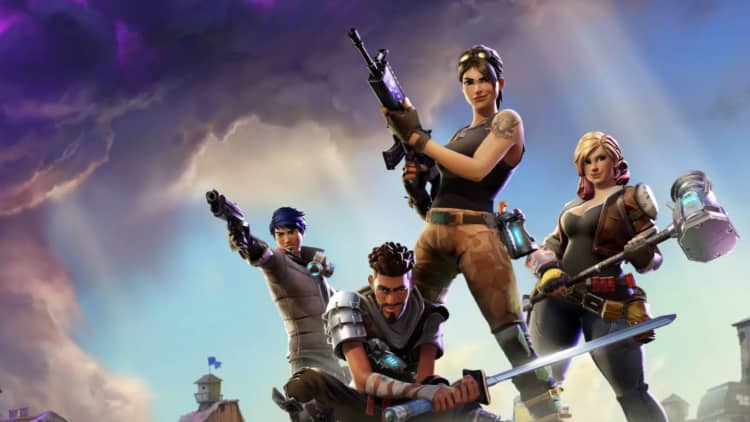
"Fortnite" — a free video game where characters fight and build defenses to survive — is the latest gaming phenomenon to sweep the web.
But "Fortnite" is about to face a new challenge: The fickle world of mobile gaming, where companies can make a ton of money on a hit game, only to fade into oblivion later.
The game started on PC, Playstation 4, Xbox One and Mac, and is now moving to iPhone. Fans of the game say the iPhone launch is a game-changing development that lives up to the other versions of the software.
But while PC and console franchises like "Minecraft" and "Call of Duty" have been enduring cash cows, the world of mobile gaming tends to have higher highs and lower lows. "Fortnite's" creators might be wise to keep history in mind as they try to monetize on mobile.
The good news for "Fortnite" is that mobile game spending is 2.3 times higher than PC and Mac gaming, and 3.6 times higher than game consoles, according to a recent report from App Annie and IDC. Although only about 35 percent of total apps downloaded are games, games generate about 80 percent of spending in the Google and Apple app stores. iPhone users spend about twice as much on games as Android users, the report said.
The bad news is that a short-term payout doesn't guarantee long-term monetary success — just ask the makers of hit games like Puzzle & Dragons and Fruit Ninja, which were among the top mobile games ever as recently as 2015.
GungHo Online Entertainment, which gets about half of its revenue from Apple, had one of the world's best-selling games in Puzzle and Dragons. But since 2013 the company's market valuation has been on a steep decline.
Fruit Ninja is still in the top 50 arcade games in the App Store, according to App Annie. But after surpassing a billion downloads during the height of its popularity, the company behind Fruit Ninja may have lost its footing. Last month, Halfbrick put two of its iPhone X projects on indefinite hiatus, in part because of the "financial feasibility of continued development." Some tech blogs have also reported layoffs of up to half the staff at Halfbrick (CNBC has not been able to independently confirm the layoffs.)
Remember Zynga?
There are plenty more examples of how gamemakers have struggled to make a sustainable business on the App Store.
Investors slashed a third off the stock price of "Angry Birds" maker Rovio one day in February, amid expectations of shrinking margins and revenue.
King Digital, the company behind the "Candy Crush" franchise, was acquired by Activision Blizzard at a price lower than its IPO price.
Some companies, like Nintendo, have recently found success doing multi-platform games on mobile and other hardware. And "Fortnite" could follow that path. KeyBanc Capital Markets analyst Evan Wingren wrote in a note to clients that "Fortnite" could be a strong rival to established gamemakers.
"This means players across devices can squad up with friends and play together," "Fortnite" maker Epic Games said when it announced the news. "We believe this is the future of games. The same game on all platforms. Console quality graphics and action. Play when you want, where you want."
And while fellow mobile game maker Zynga ("FarmVille" and "Words with Friends") hasn't hit a new all-time high stock price since 2012, it's holding its own, as is Kardashian-game maker Glu Mobile, which peaked in 2007.
Both companies have evolved over time. Zynga has made an "aggressive recalibration" toward "forever" game franchises while Glu is shifting away from celebrity games.
"In the case of Zynga, it missed the mobile transition from Facebook and fortunately, we caught it in time and now we're on it. We don't want to do that again," Zynga CEO Frank Gibeau said at the Morgan Stanley Technology, Media & Telecom Conference last month.
Glu Mobile CEO Nick Earl said on a recent conference call, "I do feel that there is beginning to be a separation from those who have figured out .... how to drive user acquisition, those who kind of have the infrastructure to be able to scale appropriately and really understand the market. And I'd like to think that we are fitting into that category."
The challenge for "Fortnite" will be to evolve, too.
—CNBC's Tae Kim contributed to this report.


